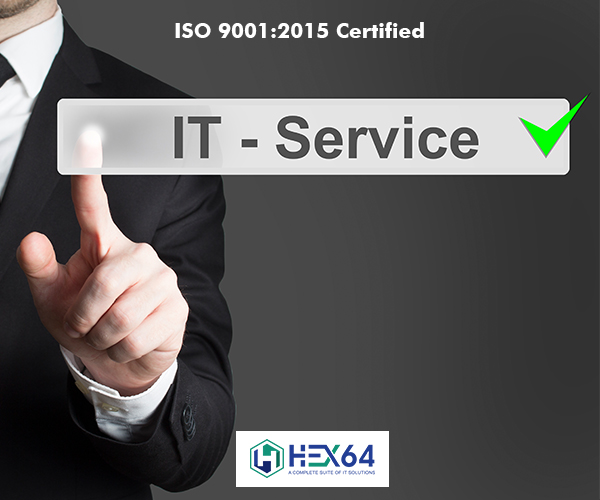The disputes for and against outsourcing the IT services consumed by a business are several and diverse.
One item to recognise is that there is no ‘one measurement fits all’ in this figure. Possibilities are that most companies will require to outsource at least a portion of services that have a very specialized platform or support necessary. But just how considerably to go in scattering the answerability for managing, hosting, and supporting IT services are a particular decision.
In this section, I consider the amount of the pros and cons of outsourcing your IT services.
Insourcing or outsourcing: all or nothing?
Your appropriate reasons for making this judgment won’t be the same as different businesses. You may be seeing at financial, resourcing, expertise, or any number of different factors. It is most possible that the most suitable option is continuing to be a hybrid approach with approach with umpteenth services supported within the organization and some through third-party vendor.
As with any service management approach, you take and adapt to suit your individual needs.
Outsourcing benefit-
Expertise
Investments
Try before buy
Flexibility
Outsourcing concerns-
Loss of control
Unplanned costs
Loss of ownership
No business knowledge
Another name in the queue
Benefits of outsourcing IT services
Let’s look primarily at some of the advantages of outsourcing:
Cost savings
More often than not, the driver for moving to managed services is expense. There can be considerable expense advantage derived from denial of rights the organization of costly tech resources whose expertise may only be needed occasionally.
One oft-overlooked advantage is that outsourcing reshuffles the expense of employees turnover, holiday and sick leave, and other outage term that grow when working with in-house resourcing. Likewise, sharing complicated technology platforms can offer valuable savings to the business. AaaS, IaaS, SaaS and TaaS, and other offerings can all offer valuable economy of scale. Paying for a part of a service as a tenant will, in majority cases, be less costly than carry the expense of hardware, security, licensing, maintenance, and different associated outlay on an in-house solution.
Availability of expertise
A managed service provider, serving various clients, will have the caliber to source, and pay for, a high level of specialization in the products they propose.
The expense of hiring at this scale can be prohibitive for a one business, especially when you contemplate that:
• An specialist’s specialized knowledge may not be needed very often.
• At majority times, this epecialist will likely be undertaking task that are well below their skill level, which are improbable to be engaging or achieving.
For critical systems that are needed to be available on the watch, a single resource will not be sufficient. A managed provider will have various resources as well as the available to meet agreed service need, regardless of the period that issues occur.
Investment considerations
Using managed services make free an corporation to shifting what would have been capital expenditure (CapEx) to operating expenditure (OpEx). This can create securing agreement for latest services simple.
Try before you buy
Outsourcing services provide you a chance to “try before you buy”, guaranteeing that the service you are considering is suitable for your purpose and will provide the value you are watching for.
This is not reasonable if you are creating the solution in-house. In case, you require to be assured that you will get the prizes of the grant from the source. It will be too delayed once you have bought and installed infrastructure and software to transform your minds.
Flexibility
A significant advantage of outsourcing is the capability to instantly add and remove the ability to fit with changeable demands.
For example, a government tax assessment bureau may well have a demand for extra ability during yearly filing sessions but will not need this for the extra 11 months of the year.
• A managed service provider will be capable to promptly give this extra ability and remove it when it is no further needed.
• An insourced solution will always want to have the ability available to reach the top periods of the year, which occurs in the trash and unutilized capability.
Versatility can also come into action when new services are being prepared or old ones replaced. Vendors will instantly be capable to ‘spin up’ virtual machines as testing environments and remove them just as speedily. These temporary capacity improvements are a pretty worthy ability that is not economic for greatest insourced environments.
Sticking to what you are good at
The last thought in support of outsourcing: If you are operating in a retail business, an accountancy firm, or a clinic (Hospital), when you have skills that work in those jobs. Does it really make sense to spin up an IT capacity within the business? Are you strong focusing on your core industry and leaving IT to those who are experts in this field?
Risks of outsourcing IT services
Certainly insourcing is not running to be all a bed of roses. There will undoubtedly be thorns for you to negotiate.
In similitude, let’s now see at any of the risks that you will encounter when outsourcing IT services.
Security concerns
In an atmosphere where data holes hit the headings at an alarmingly consistent speed, many businesses will be sincerely concerned about trusting their customer data and private IP to a third party. More extensive providers may give insufficient control over where in the world your data is picked and this can, pretty reasonably, cause stress.
Despite of how many contractual protection you put in place, you are still relinquish guardianship of this information to various industry over that you haven’t daily activity. While contracts may provide you support if something go wrong, this is incredible to rebuild a reputation that has been contaminated by a serious data breach.
Loss of control
The idea of providing control of a critical portion of your business to a third party can cause attention. The service provider will be responsible for the agreement and the controls during IT service management. Handing over this power to a vendor can be encounter and worrying, especially when you are using a provider you have not operated with before. Mitigate these worries by meeting with other organizations that use the services of your proposed provider.
Unplanned extra costs
Outsourcing should conserve capital. However, picking the most budget proposal may not be your most fitting opportunity. You need to understand exactly what is involved in your contract and what will be classed as additional. Ensure that you know accurately what your granted level of service enables you to are you confident that this will fit your necessities? If it doesn’t, it will almost surely price you more than a huge contracted level of service would have.
Loss of ownership and responsibility
In-house IT professionals are spent in the company they work for and consequently more likely to feel a sense of ownership for gaining a solution to an issue. They are also likely to go the additional distance to support their co-workers get back to job when IT issues happen. External IT resources will not have a similar feeling of ownership and accountability for their co-workers and therefore may not put the same level of effort into finding a solution.

Lack of business understanding
Extremely specialized companies may strive to get managed service provides who actually ‘get’ their company. It may be hard to source suitable support for niche services. There may be some situations where outsourcing simply isn’t a viable choice.
Just another name in the queue?
A comprehensively managed service provider will have different clients who may have competing requirements where do you meet in the line?
If a different customer has a critical incident when one of your essential services suffers an obstruction, will your incident receive the proper advantage? Or, will you be waiting for the best anxiety to be fixed before resources can run on your account?
Outsourced vs insourced: How to choose
Eventually, the judgment is not whether to outsource. The query should be:
IT services that are essentially commodities are primary targets for outsourcing. These are where your biggest savings are anticipated to be—and wherever you will meet the least hazard.
Services that are better compatible with in-house management often cover:
• Services that include classified data.
• Extremely specialized services.
• Services that may disclose your key intellectual assets.
Difficulties with these special services offer bigger reputational risk and are also expected to come with an extremely more expensive price tag—neither of which might be worthwhile.
Adopting a hybrid path to managing your IT services is possible to give your business with the most favorable result.



